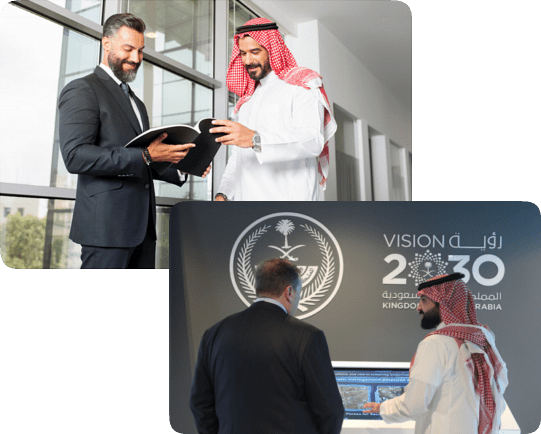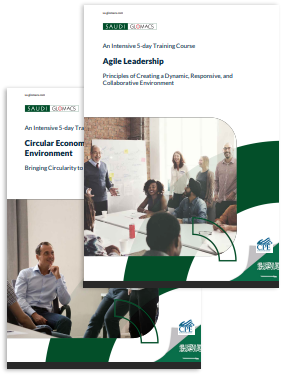An Interactive 5-Day Training Course
Energy Efficiency and Sustainability in Chemical and Power Plants
The Application of Energy Efficiency in the Industry
Course Overview
Energy Efficiency and Sustainability in Chemical and Power Plants training course lays the foundations to the understanding energy efficiency in industry, concerning electrical, mechanical, and thermal energy systems. The systems approach, in which a holistic approach rather than an equipment component approach, is taken for maximum benefit and prioritization of opportunities. Implementable energy efficiency projects are some of the most attractive and underrated investments, since the overwhelming number of energy projects have large percentage savings and very low (if any) capital or operational expenditure.
Applying Energy Efficiency provides a comprehensive overview of the technical and economic aspects of energy efficiency (EE) measures. This training course cover support mechanisms for industrial sector and built environment energy efficiency (EE) projects. Key attributes of energy efficiency (EE) measures are highlighted, such as savings potential and organizational aspects (e.g. energy management systems and energy audits).
This GLOMACS training course will highlight:
- Principles of energy efficiency, including key concepts, technologies, and strategies crucial for optimizing energy use in chemical and power plants.
- Conducting energy audits, data collection, and analysis, empowering attendees to identify and implement energy-saving opportunities in their facilities.
- Explore cutting-edge technologies for enhancing energy efficiency, such as renewable energy integration, advanced control systems, and waste heat recovery solutions.
- Sustainability through life cycle assessment, waste reduction, and resource management, equipping participants with essential practices for building a more sustainable operation.
- Develop actionable plans for project implementation, including financing options and stakeholder engagement, ensuring they leave with practical tools for immediate application.
Training Outline
DAY 1: Introduction to Energy Efficiency and Sustainability
- Definition and importance
- Key concepts: energy conservation vs. energy efficiency
- Principles of sustainability
- Environmental impacts of chemical and power plants
- Overview of global and local regulations
- Key sustainability standards (ISO, WHG, etc.)
- Energy flow in industrial processes
- Energy sources and consumption patterns
DAY 2: Energy Auditing and Management
- Purpose and types of energy audits
- Methodologies and tools for energy assessment
- Key performance indicators (KPIs)
- Energy monitoring systems and software
- Case studies of successful audits
- Common inefficiencies in chemical and power plants
- Framework for EnMS (ISO 50001)
- Implementing and maintaining EnMS
DAY 3: Technologies for Energy Efficiency
- Energy Efficient Technologies in Chemical Processes
- Heat exchangers, pumps, and compressors
- Catalytic processes and reactor design
- Renewable Energy Integration: Solar, wind, and biomass options
- Hybrid systems for power generation
- Advanced Control Systems, Process optimization techniques
- Automation and control strategies
- Technologies for waste heat recovery
- Economic and environmental benefits
DAY 4: Sustainability Practices in Chemical and Power Plants
- Introduction to Life Cycle Assessment (LCA) and its importance
- Steps in conducting an LCA for chemical processes
- Water and Resource Management Strategies for minimizing water usage
- Circular economy principles in chemical manufacturing
- Waste Management and Reduction Techniques for waste minimization
- Recycling and reusing materials in chemical processes
- Corporate Social Responsibility (CSR)
- Role of CSR in sustainability
- Reporting and communication of sustainability efforts
DAY 5: Implementation Strategies and Case Studies
- Developing an Energy Efficiency and Sustainability Plan
- Strategic planning and goal setting
- Stakeholder engagement and collaboration
- Financing Energy Efficiency Projects
- Cost-benefit analysis and payback period
- Case Studies of Successful Implementation
- Review of real-world examples
- Lessons learned and best practices
- Future Trends and Innovations
- Emerging technologies and trends in energy efficiency
Certificates
- On successful completion of this training course, GLOMACS Certificate will be awarded to the delegates
- Continuing Professional Education credits (CPE) : In accordance with the standards of the National Registry of CPE Sponsor, one CPE credit is granted per 50 minutes of attendance
Accreditation

GLOMACS is registered with NASBA as a sponsor of Continuing Professional Education (CPE) on the National Registry of CPE Sponsors. NASBA have final authority on the acceptance of individual courses for CPE credit. Complaints regarding registered sponsors may be submitted to the National Registry of CPE Sponsors through its website: www.learningmarket.org.
All Training Seminars delivered by GLOMACS by default are eligible for CPE Credit.


About Saudi Glomacs
At Saudi GLOMACS, we specialize in delivering world-class training courses in Saudi Arabia and across various international locations. Our training courses are tailored to meet the unique demands of Saudi Vision 2030 and the Human Capability Development Program, focusing on empowering Saudi citizens and enhancing workforce skills. We offer diverse courses spanning leadership, management, engineering, and technical disciplines to cultivate expertise and drive professional growth. Our flexible learning options—whether in-person, online, or in-house—ensure accessibility and convenience for individuals and organizations alike.
With over 30+ years of experience through the GLOMACS global network, we are committed to delivering innovative, results-driven training solutions. Our expert instructors combine industry knowledge with dynamic teaching methods, fostering practical skill development and long-term career success. By choosing Saudi GLOMACS, you're investing in personal excellence and contributing to the Kingdom’s sustainable economic growth and vision-driven transformation.
What do you need to learn next?
Check our list of courses or let us customize a course for you.
View courses



